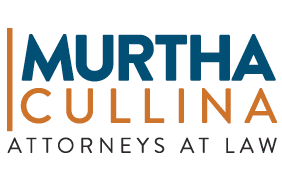The Paycheck Protection Program (“PPP”) was a U.S. Small Business Administration loan program created under the CARES Act to help struggling businesses keep their workforce employed during the COVID-19 crisis. One of the biggest benefits of the PPP was the ability of loan recipients to treat the loan forgiveness as tax-exempt income to the extent the loan proceeds were used for eligible expenses. Under the PPP, lenders could forgive the loan if the loan recipient met three conditions:
- The loan recipient was eligible to receive the PPP loan;
- The loan recipient used the loan proceeds to pay eligible expenses, such as payroll costs, rent, interest on the business’ mortgage, and utilities; and
- The loan recipient applied for loan forgiveness and attested on the loan forgiveness application that they were eligible for a PPP loan, they used the loan proceeds for eligible expenses, certain financial information was correct, and they met other legal qualifications.
When all three requirements were met, the loan was forgiven. However, unlike other forgiven debts, the loan recipient did not need to include the forgiven portion of the loan in income.
In a recently issued Chief Counsel Memorandum 202237010 (“CCM”), the IRS confirmed that an improperly forgiven PPP loan is taxable income to the loan recipient. The CCM concluded that when a loan recipient’s PPP loan is forgiven based on misrepresentation or omissions, the loan recipient is not eligible to exclude the forgiveness amount from income and must include the portion of the loan proceeds that were forgiven based upon the misrepresentations or omissions into income and pay any additional income tax.
The fact pattern in the CCM consisted of a taxpayer who received a PPP loan in the year 2020, did not use the loan proceeds for eligible expenses; but applied for and received loan forgiveness based on a misrepresentation that she had. The IRS concluded that the loan proceeds could not be excluded from the taxpayer’s income because she (1) had an accession to wealth, clearly realized and over which they had complete dominion, and (2) retained the loan proceeds under a claim of right without restriction as to their disposition even though the Small Business Administration could pursue repayment of the improperly forgiven loan in the future.
In a footnote to the CCM, the IRS states that a variety of fact patterns may establish that a taxpayer is not eligible for PPP loan forgiveness and that the conclusions in the CCM cover all situations that lead to an improper grant of forgiveness.
Taxpayers who may have inappropriately received forgiveness of their PPP loans should consult with a tax professional to determine their eligibility for forgiveness and whether an amended income tax return should be filed to report the forgiveness amount as income.





